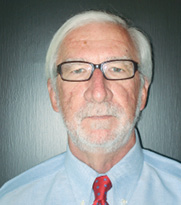While last month's column looked at "The Myth of Market Share," (see Farm Equipment, March 2013, p. 90) this column will address the realities of market share. While it is true that the manufacturers have an insatiable appetite for more and more market share, it is equally true that many dealers can blame themselves for their poor market share performance.
Several years ago, I had a client who carried two major tractor lines and two shortline tractor lines. His belief was that by controlling the market place, his sales would increase. Just the opposite happened. Market share was abysmal for all four lines while his competitive dealer built market share by proclaiming to be an "expert" in what he sold rather than a "jack-of-all-trades" that characterized the reputation of my client.
When a representative of one of the major lines told this dealer that unless his market share drastically improved, the manufacturer would have no other option but to terminate his contract, the dealer was aghast. Of course, the manufacturer was right in its decision.
On the other hand, when a dealer from a town of 650 people consistently sells 70-80 combines a year, and the manufacturer promotes the dealer as a paragon of market share virtue, how hypocritical is that manufacturer? Who, for a second, believed that dealer was selling those combines in his assigned territory? Who, for a second, didn't know that the dealer was selling to anyone and anybody throughout the 48 contiguous states? But, it wasn't until that dealer got caught with his hand in the proverbial cookie jar that the backpedaling and denials started to spew forth.
Many manufacturers have historically cultivated market share prostitutes by establishing too many undercapitalized dealers too close together whose only orientation training consisted of a "bunch" of product tapes that focused on equipment sales. Solid business practices and an emphasis on product support have been, and in many cases continue to be, simply an afterthought.
A review of dealers and manufacturers who have consistently increased their market share over the last 40 years while maintaining a high level of profitability would reveal a few common denominators. First, their management team has been consistently groomed from within; and second, the background of the most successful CEO's has been marketing or operations, rather than finance or accounting. Leaders without equipment industry experience have proven to be woefully unsuccessful in managing and leading a company that sells equipment through a dealer or distributor network.
Similarly, rather than resenting their dealers' success, profitable market share leaders want their dealers to not only have respectable market share, but they also want them to be the most profitable business in their town. I have worked with manufacturers in the past who have deplored the amount of money that their dealers were making. Rather than basking in the success of their dealers' businesses, they almost seemed to relish the economic travails that would periodically confront their dealer organization.
Two other characteristics of market share leaders, whether dealer or manufacturer, are a purity of line and protected territories. Concerning the purity of line, most dealers resent the fact that the manufacturer pressures the dealers into carrying only their line. The fact is, provided that the manufacturer has a full line, and, provided that the manufacturer is financially strong, why would a dealer want to carry another line? So that their salesforce can cherry pick their sales? So that the order taker won't have to leave the dealership? So that the dealership can achieve an overall low asset turnover because of all the additional inventory that needs to be stocked? Carrying multiple lines should only be considered when there is an open point in the product mix, or when the dealer suspects that his/her primary vendor is financially unstable.
Another criterion for a profitable market share leader is to have protected territories. Now, most dealers want them, but only for the other dealer. Rarely does a dealer stand up and admit that they sell equipment into another dealer's territory, and if they do, it is only for "retaliatory purposes." But the fact is most, if not all, dealers sell into other territories because in many cases it is easier to cherry pick a sale than to cultivate a partner. Dealers who stay within their territory should be rewarded, while those who sell outside their territory should be financially penalized.
The final characteristic of a profitable market share leader is that they develop a culture where profitability is the focus and market share is a by-product of good operational practices. The emphasis is on customer share and customer satisfaction rather than on selling machines and volume bonus checks. Profitable market share leaders believe in the old maxim that while sales sells the first machine, parts and service sell the second and third machine. Market share is not bad; it just shouldn't the primary focus of an equipment dealership.






